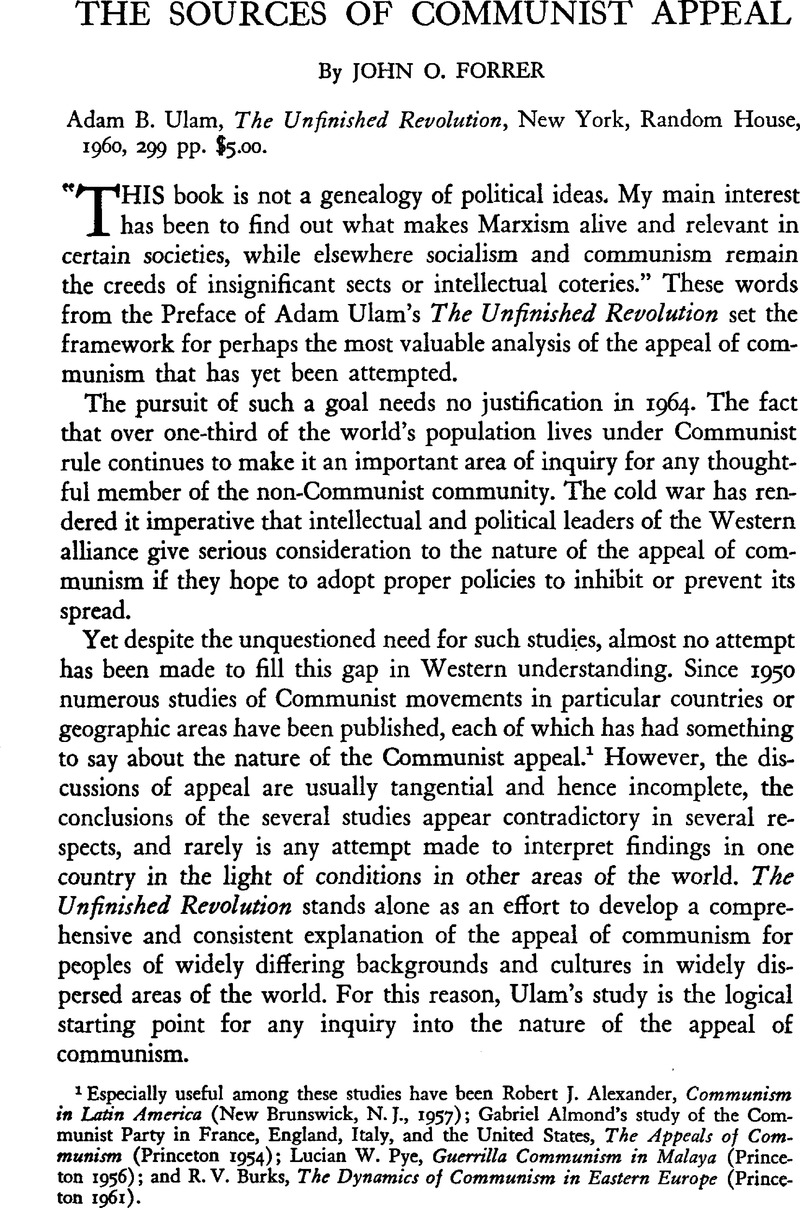Published online by Cambridge University Press: 18 July 2011

1 Especially useful among these studies have been Alexander, Robert J., Communism in Latin America (New Brunswick, N. J., 1957)Google Scholar; Gabriel Almond's study of die Communist Party in France, England, Italy, and the United States, The Appeals of Communism (Princeton 1954)Google Scholar; Pye, Lucian W., Guerrilla Communism in Malaya (Princeton 1956)Google Scholar; and Burks, R. V., The Dynamics of Communism in Eastern Europe (Princeton 1961)CrossRefGoogle Scholar.
2 Burks, introduction and chaps. 1 and 2.
3 See, e.g., Overstreet, Gene D. and Windmiller, Marshall, Communism in India (Berkeley 1959), 537ff.Google Scholar; or Pye, chap. 9.
4 See, e.g., Brachman, Arnold C., Indonesian Communism (New York 1963), 304Google Scholar; Johnson, Chalmers A., Peasant Nationalism and Communist Power (Stanford 1962), 180Google Scholar; or Burks, particularly chap. 2.
5 Gabriel Almond suggested it ten years ago in the following eloquent, if somewhat emotional, passage from The Appeals of Communism: “Thus we may describe the various types of Communist parties in terms of the kinds of alienations which have contributed to them, and appraise their potentialities according to the extent to which these alienations are distributed throughout the society. In England and the United States, the kinds of alienations which appear to have fed the Communist movements were those incidental to the acculturation of certain ethnic groups, the essentially private alienations of broken families and unhappy childhoods, or the temporary alienations of economic and political crisis. In France and Italy, we are dealing with societies which have failed to relate large elements of the population to dignity and meaning, and where the Communist parties draw upon historically endemic feelings of estrangement and hopelessness among certain social groupings. In Southeast Asia, and potentially in the Middle East, in addition to the estrangements of class and status, there are the alienations of race, of ethnic and cultural discrimination, which build up a potential that is frightening in its scope and intensity. The Communist movement draws the destructive energies and the desperate impatience from all of these varieties of protest and resentment and harnesses them in the service of a controlled and comprehensive destructiveness. Thus there are met in this movement all the alienations of man, rushing from many and unlike tributaries into a torrent of wrath without end” (p. 381).
6 Tucker, Robert C., Philosophy and Myth in Karl Marx (Cambridge, Mass., 1961)Google Scholar.